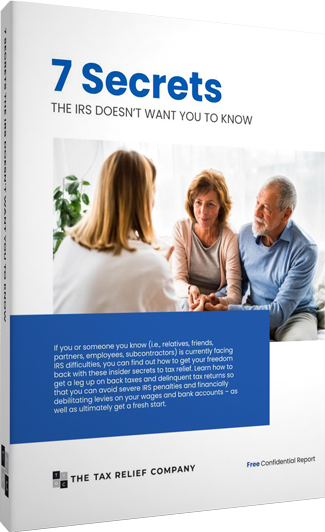The Top Five Cannabusiness Tax Myths
It’s difficult to understand cannabis tax, especially for those trying to figure out the tax obligations of their business. Knowing a business is legal in a particular state, but illegal according to federal law, makes taxes even more confusing. We’re going to clear up a few tax myths for you.
“Calculate the Odds of Getting Audited. It’ll Constitute Tax Planning.” 
Do not do this. This is an alarming myth because it causes businesses to focus on the wrong question. This “audit lottery” will always lead you astray. The IRS only audits a portion of small businesses, but as Mark Twain once said, there are “lies, damn lies, and statistics.” Accordingly, a cannabis business is just not proportional to any other legal business; the odds of being audited by both federal government and state are much higher than for other types of businesses.
Furthermore, to increase efficiency, the IRS selects issues or industries it believes are rife with noncompliance or abuse. Because a seemingly high amount of cannabis businesses maintain a history of noncompliance, the IRS is active in auditing them. A recent law change has made it easier for the IRS to audit partnerships and LLC’s and beginning in 2018. As a result, the partnership/LLC is now responsible for sending tax due on any IRS adjustment on an audit.
Rather than wasting time debating whether or not you’ll be audited, focus on understanding how to comply with federal tax law and how to document transactions in the most efficient manner. Your Enrolled Agent can also help!
“Drafting Legal Documents Are Sufficient To Support My Tax Return.”
You should have legal documentation to support the fundamental financial events of your business. You’ll need to document loans from an owner, contribution to equity, management rights, responsibilities of a new partner, and more.
But having contracts in place is merely the starting point when it comes to your taxes. An important tax law maxim is that the “tax follows economics”. This means the proper tax treatment reflects what happens in your business, not what contracts are drafted and placed in a file.
In evaluating the tax consequences of a transaction, the IRS will always start with the documents, but it will then analyze how the business really operates (i.e., its economics) and compare that to the documents. Unsigned documents are ignored. Documentation that does not support the economics of the business is ignored. Contracts and legal documents are ignored if they are not reflected in your books and records. Your contracts and corporate documentation must also reflect how your business operates. Then, and only then, they are useful in determining the correct tax treatment.
“Compliance with State Law is not Relevant for Federal Income Tax Purposes.”
Our cannabis clients often wrongly believe state law operates independently from federal law. In administering federal tax law, the IRS often restructures or ignores transactions with no business purpose or that were structured solely for tax avoidance purposes. Most often, the starting point in that evaluation is state law and a transaction that comports with state law has a greater chance of being viewed favorably by the IRS. Conversely, a transaction or structure that does not comport with state law, will most likely be rejected by the IRS on its face.
“Having a Tax Professional Prepare My Return Limits My Responsibility.” 
Wrong. You the taxpayer have the ultimate responsibility for the information presented on your return. You are declaring that to the best of your knowledge, the information presented is, true, correct and complete when you sign it. This includes information presented on schedules and statements. Therefore, it is crucial you have a clear understanding of the facts presented on the return and the reasons behind any tax treatment of a transaction.
“Tax Law Applies to My Cannabis Business Differently Than Other Businesses.”
This is true to the extent that cannabis businesses are forced to reckon with IRC §280E. However, the principles of federal income tax law are generally applicable to all types of businesses. The tax law allows for a degree of flexibility in evaluating how a legal entity and its owners are subject to tax. A business may choose to operate as a limited liability corporation, and as such, be treated for tax purposes as a disregarded entity (i.e., the sole member is subject to tax) a partnership (i.e. each partner is subject to tax) or as a “C” corporation (i.e. the corporation is subject to tax). The tax law governing these options are no different for a cannabis business.
Contact Your Enrolled Agent
The cornerstone of the cannabis industry is strict state regulation, reporting, and compliance. Understanding and avoiding the tax myths discussed above will assist you greatly. You’ll be able to evaluate how to properly and effectively comply with both state cannabis law and federal income tax law.
************************************************
Jeffrey Schneider, EA, CTRS, NTPI Fellow has the knowledge and expertise to help you reach a favorable outcome with the IRS. He is the head honcho at SFS Tax & Accounting as well as an Enrolled Agent and a Certified Tax Resolution Specialist.
************************************************
Now What? I Got A Tax Notice From The IRS. Help! Defining and deconstructing the scary and confusing letters that land in your mailbox. Jeff defines and deconstructs the scary and confusing letters in a fashion that mixes attention to detail with humor and an intricate clarification of what is what in the world of the IRS.
The book is available in paperback and ebook on https://Amazon.com
************************************************
For more on SFS Tax Problem Solutions, visit: http://sfstaxproblemsolutions.com/
For more on SFS Tax & Accounting Services, visit http://sfstaxacct.com/
************************************************
738 Colorado Avenue Stuart, FL 34994
************************************************
Phone: 772-337-1040
************************************************
https://twitter.com/SFSTax/
https://linkedin.com/company/sfs-tax-problem-solutions
************************************************



